new to the gluten free journey?
new to the gluten free journey?
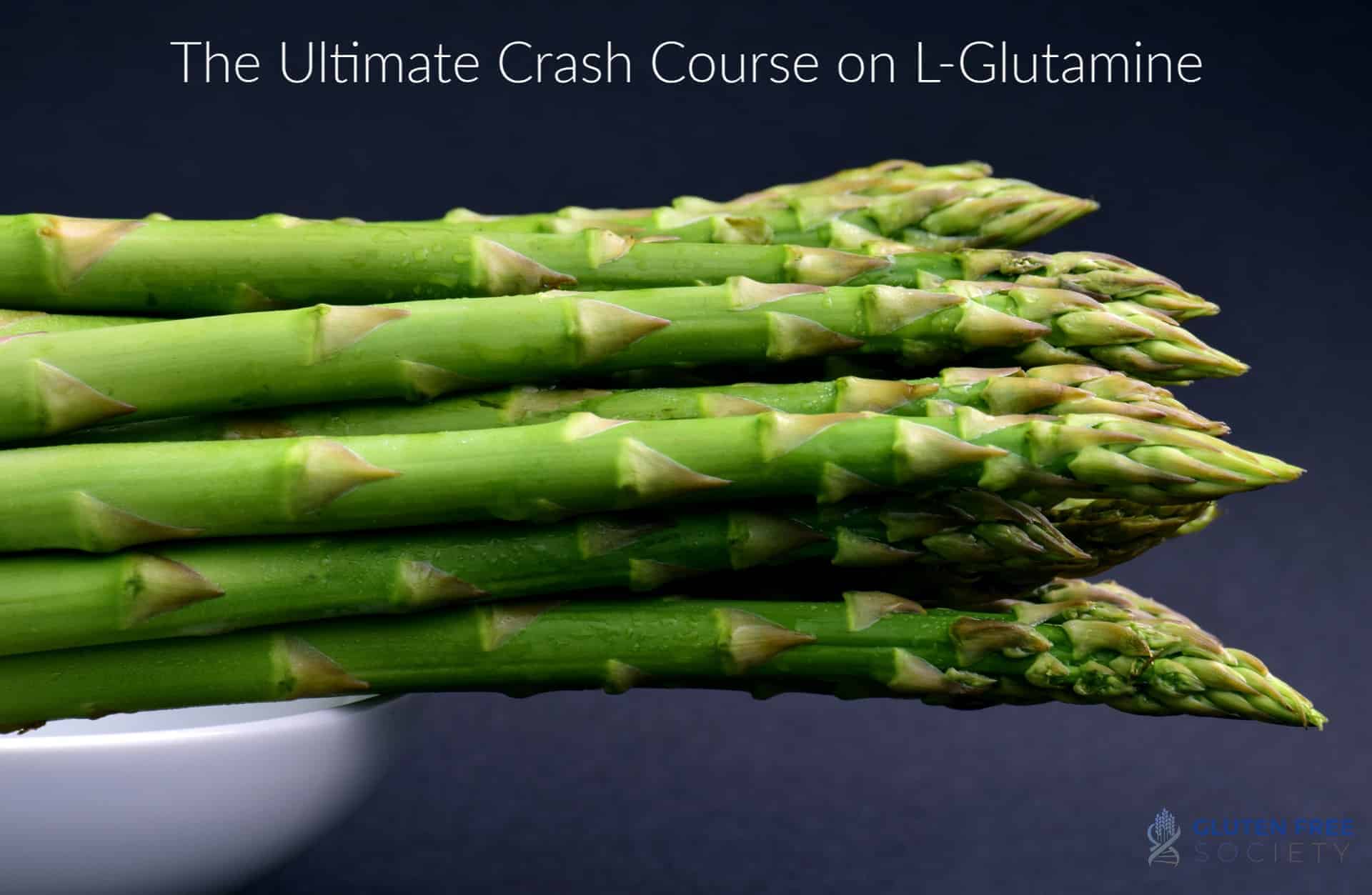
 It’s amazing how the substances that make up the food we eat can affect the functioning of our bodies. In particular, a substance found in animal meat and cruciferous vegetables called L-glutamine, or simply glutamine. Few of us have even heard of this important amino acid, much less how it impacts the body; but, the reality is that it is extremely important for our health and can cause major issues without it.
It’s amazing how the substances that make up the food we eat can affect the functioning of our bodies. In particular, a substance found in animal meat and cruciferous vegetables called L-glutamine, or simply glutamine. Few of us have even heard of this important amino acid, much less how it impacts the body; but, the reality is that it is extremely important for our health and can cause major issues without it.
Contents
Toggle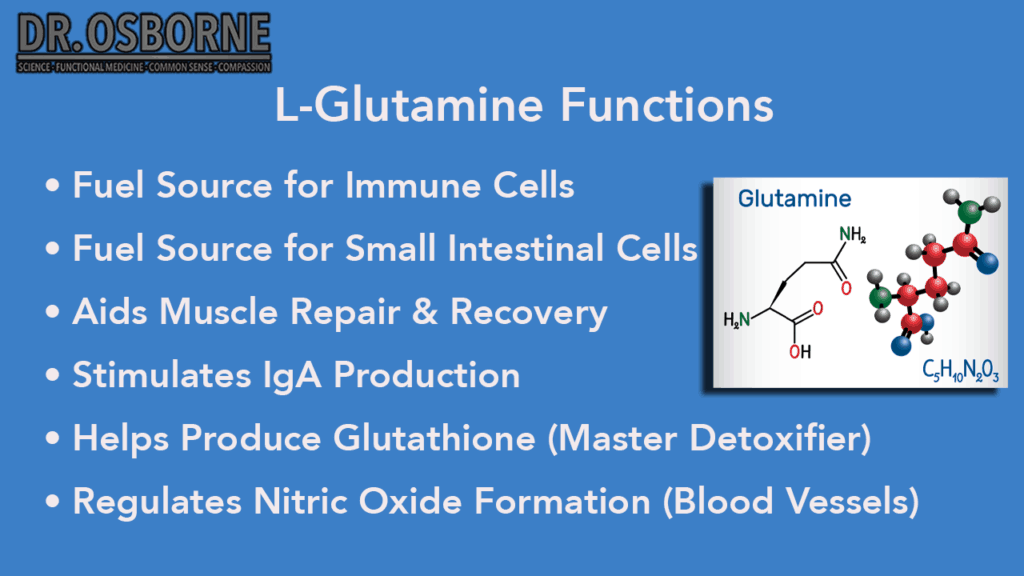 While L-glutamine has several roles within the body, many of them affect how the gut functions. L-glutamine is a fuel source for several types of cells, including intercites (small intestinal cells), lymphocytes (white blood cells), and fibroblasts (cells that synthesize extracellular matrix and collagen). Providing fuel for cells is important because they are constantly turning over.
Cells within the gut are known to reproduce themselves every two to seven days. However, without this fuel, they will not be able to replace broken-down cells and ultimately the gut will begin to deteriorate. Additionally, this amino acid helps to produce secretory IgA which is an antibody secreted in the GI tract to prevent harmful substances from entering the bloodstream.
While L-glutamine has several roles within the body, many of them affect how the gut functions. L-glutamine is a fuel source for several types of cells, including intercites (small intestinal cells), lymphocytes (white blood cells), and fibroblasts (cells that synthesize extracellular matrix and collagen). Providing fuel for cells is important because they are constantly turning over.
Cells within the gut are known to reproduce themselves every two to seven days. However, without this fuel, they will not be able to replace broken-down cells and ultimately the gut will begin to deteriorate. Additionally, this amino acid helps to produce secretory IgA which is an antibody secreted in the GI tract to prevent harmful substances from entering the bloodstream.
 As L-glutamine is one of the most abundant amino acids found in the muscle, it makes sense that it would play a major role in muscle healing and repair. It also helps fuel muscle cells to replicate themselves, again, helping with pain and repair.
This amino acid also makes up one-third of the complex that creates glutathione. Glutathione is crucial in helping the body neutralize chemicals in order to excrete them before they can wreak havoc, including inflammation. Lastly, it is vital in the formation of nitric oxide which helps blood vessels vasodilate. Without nitric oxide, there is a reduction in blood flow, and therefore, a reduction in the amount of oxygen actually reaching body tissues.
As L-glutamine is one of the most abundant amino acids found in the muscle, it makes sense that it would play a major role in muscle healing and repair. It also helps fuel muscle cells to replicate themselves, again, helping with pain and repair.
This amino acid also makes up one-third of the complex that creates glutathione. Glutathione is crucial in helping the body neutralize chemicals in order to excrete them before they can wreak havoc, including inflammation. Lastly, it is vital in the formation of nitric oxide which helps blood vessels vasodilate. Without nitric oxide, there is a reduction in blood flow, and therefore, a reduction in the amount of oxygen actually reaching body tissues.
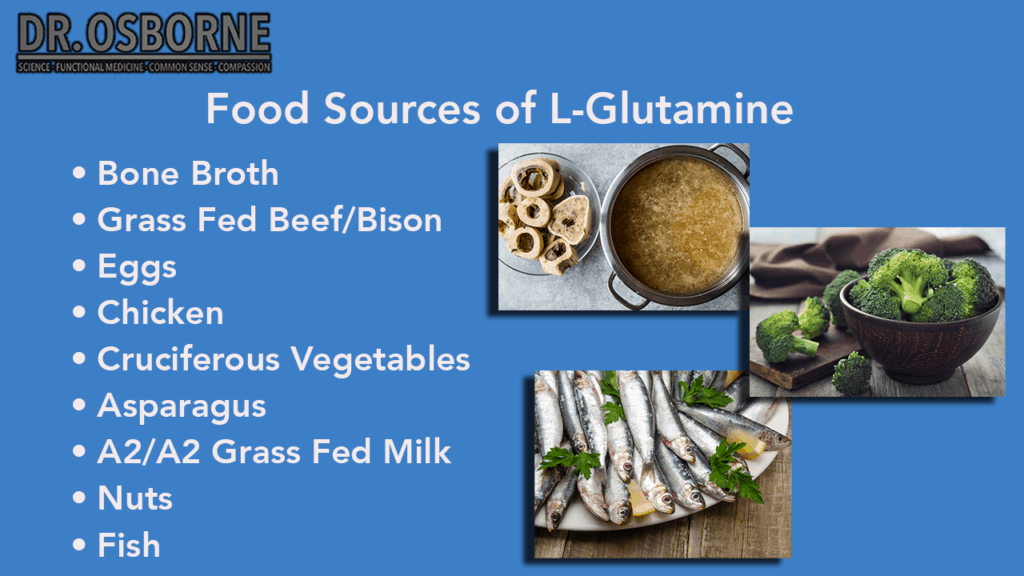 As previously mentioned, animal meats, including beef, chicken, liver, fish and even eggs provide excellent sources of L-glutamine. While those living a vegan or vegetarian lifestyle may be concerned, this amino acid can also be found in several cruciferous vegetables including sauerkraut, plain cabbage, broccoli, cauliflower, and asparagus.
If an individual does not struggle with dairy or gluten allergies, he or she may also consume milk as their source of L-glutamine. While not strong sources, nuts, and some lentils will provide this amino acid, but other foods should be considered first.
As previously mentioned, animal meats, including beef, chicken, liver, fish and even eggs provide excellent sources of L-glutamine. While those living a vegan or vegetarian lifestyle may be concerned, this amino acid can also be found in several cruciferous vegetables including sauerkraut, plain cabbage, broccoli, cauliflower, and asparagus.
If an individual does not struggle with dairy or gluten allergies, he or she may also consume milk as their source of L-glutamine. While not strong sources, nuts, and some lentils will provide this amino acid, but other foods should be considered first.
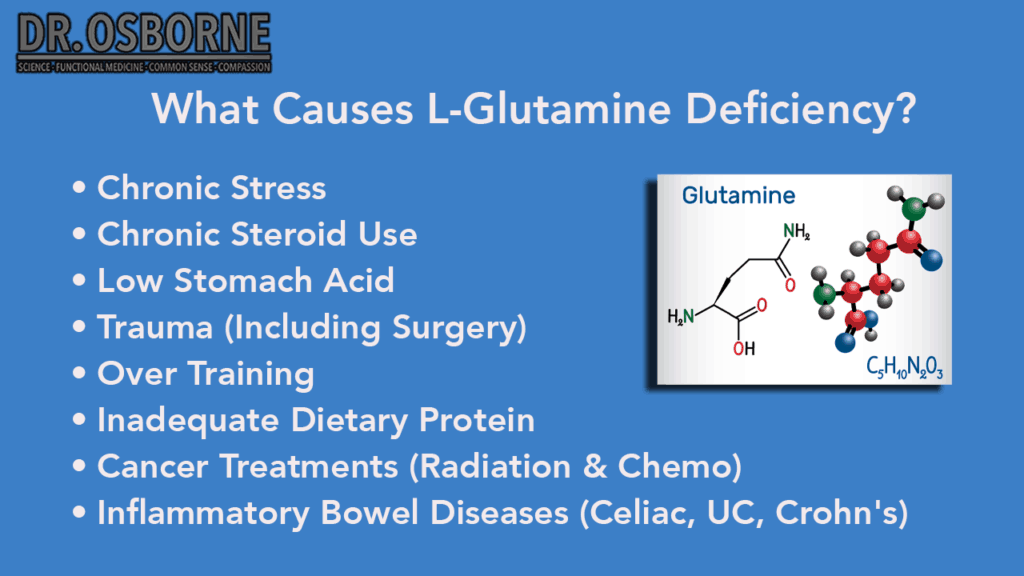 Apart from not getting enough of this amino acid in the diet, there are actually several other causes of deficiency. These include:
Apart from not getting enough of this amino acid in the diet, there are actually several other causes of deficiency. These include:
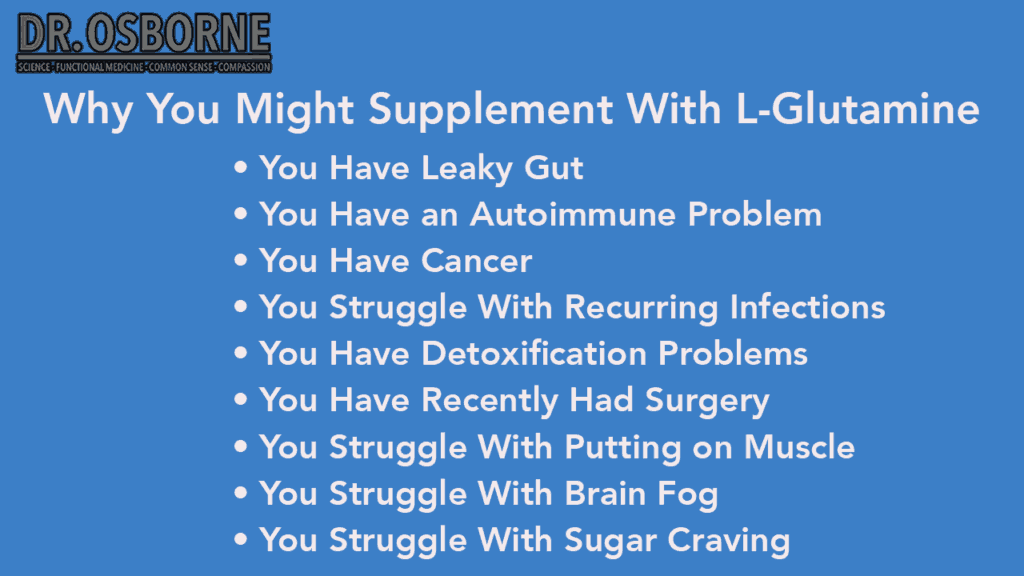 While changing one’s diet is always going to be the first consideration when dealing with a deficiency, there are some who may need additional help through supplementation. Some groups that may benefit from supplementing with L-glutamine include those with:
While changing one’s diet is always going to be the first consideration when dealing with a deficiency, there are some who may need additional help through supplementation. Some groups that may benefit from supplementing with L-glutamine include those with:
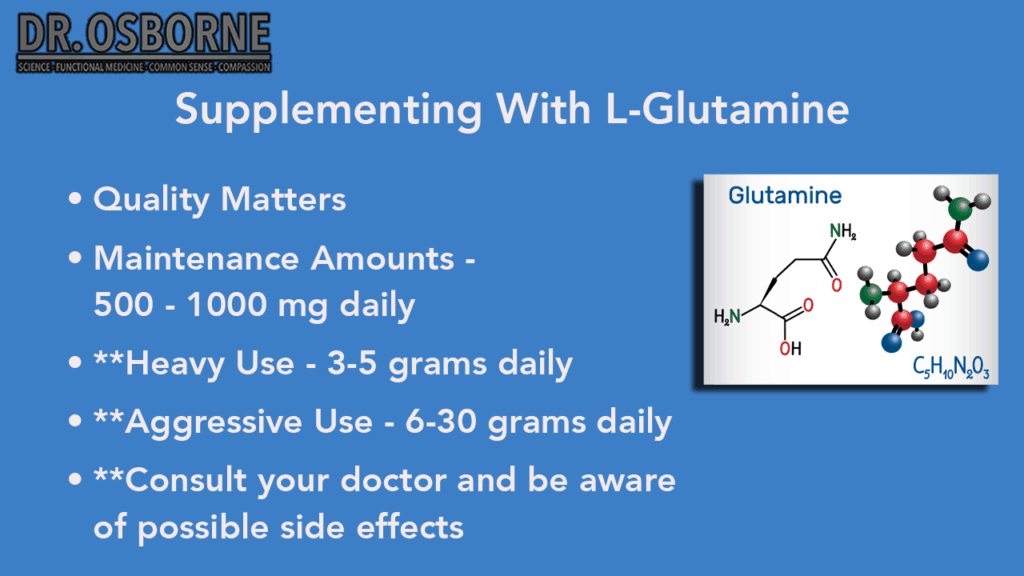 If an individual is experiencing a major issue like an autoimmune disease or cancer, the dosage of L-glutamine should always be discussed with a doctor. However, for an individual looking to increase his or her intake, a daily maintenance dose can be anywhere from 500 to 1,000mg per day.
A heavy dose, for an actual deficiency, can be from 3-5 grams per day, while a mega dose (only given under supervision) could be anywhere from 6-30 grams per day. When supplementing, be sure to proceed with caution as there can be side effects. For glutamine, these include headaches or migraines, anxiety, nausea, antsy demeanor, diarrhea, and gas.
If an individual is experiencing a major issue like an autoimmune disease or cancer, the dosage of L-glutamine should always be discussed with a doctor. However, for an individual looking to increase his or her intake, a daily maintenance dose can be anywhere from 500 to 1,000mg per day.
A heavy dose, for an actual deficiency, can be from 3-5 grams per day, while a mega dose (only given under supervision) could be anywhere from 6-30 grams per day. When supplementing, be sure to proceed with caution as there can be side effects. For glutamine, these include headaches or migraines, anxiety, nausea, antsy demeanor, diarrhea, and gas.
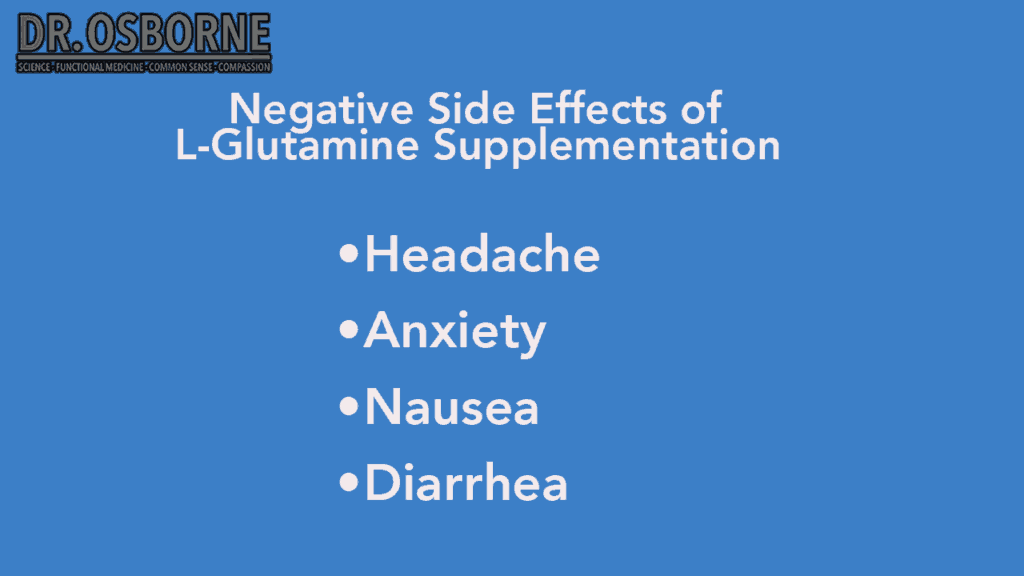
Stay up-to-date with the latest articles, tips, recipes and more.

*These statements have not been evaluated by the Food and Drug Administration. This product is not intended to diagnose, treat, cure or prevent any disease.
If you are pregnant, nursing, taking medication, or have a medical condition, consult your physician before using this product.
The entire contents of this website are based upon the opinions of Peter Osborne, unless otherwise noted. Individual articles are based upon the opinions of the respective author, who retains copyright as marked. The information on this website is not intended to replace a one-on-one relationship with a qualified health care professional and is not intended as medical advice. It is intended as a sharing of knowledge and information from the research and experience of Peter Osborne and his community. Peter Osborne encourages you to make your own health care decisions based upon your research and in partnership with a qualified health care professional.
5 Responses
I am using this because I am a sugar addict. It is helping with the sugar craving, but the headaches are terrible. I just started this week supplementing, will the headaches diminish?
Deb,
You might consider reducing your dose helps take care of the headaches.
How long till the headaches slow after cutting dose down? They are horrible.
Try taking TMG it usually takes care of that id say no less then 1000 to 1500 mg of tmg
L-Glutamine causes me horrible headaches. It feels like a hangover headache. Tylenol barely stops the throbbing.